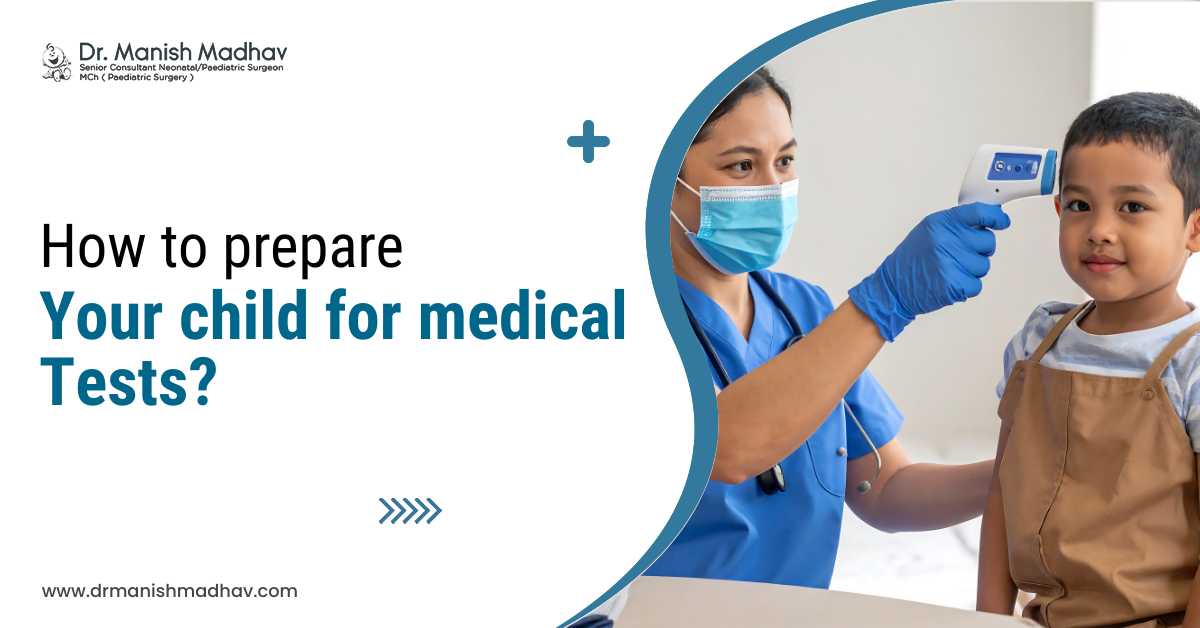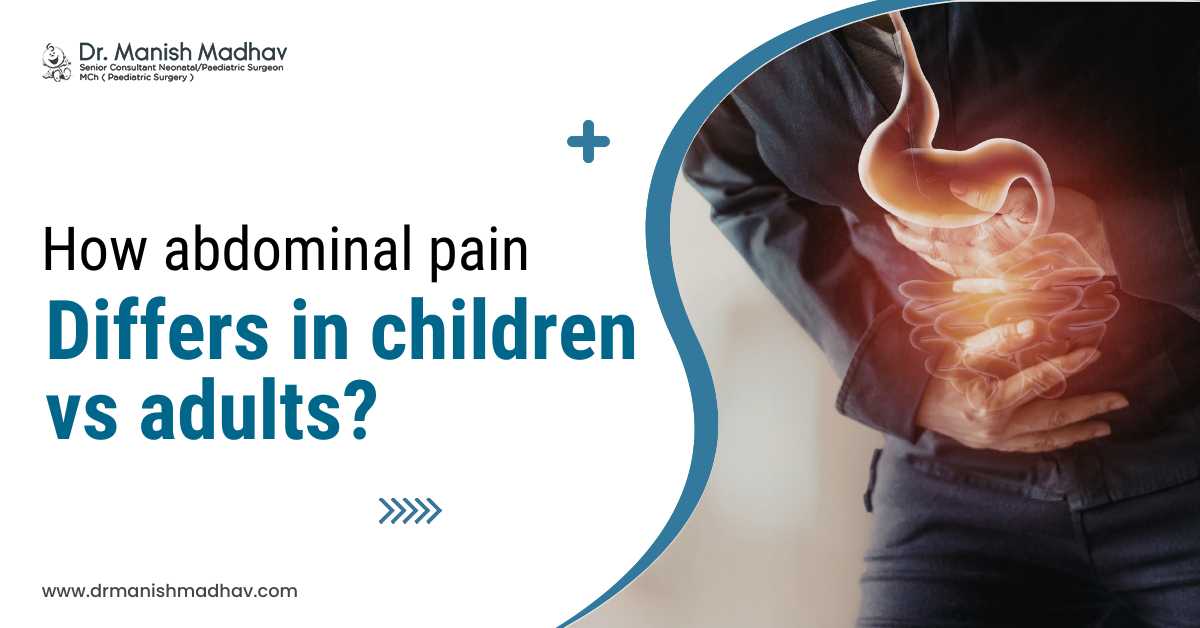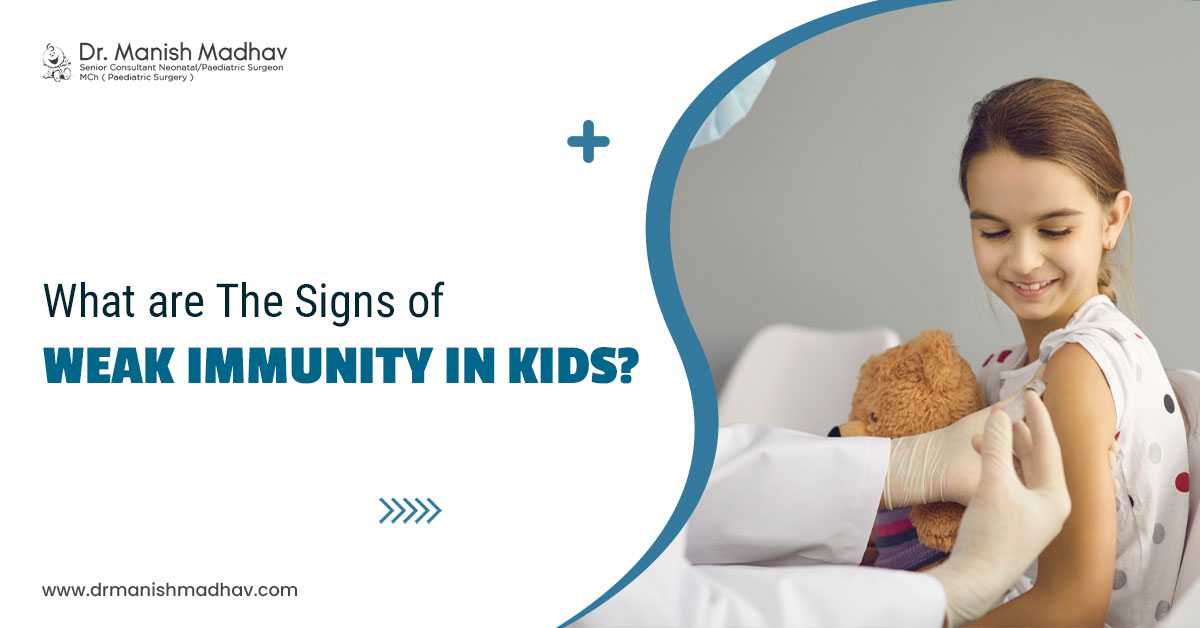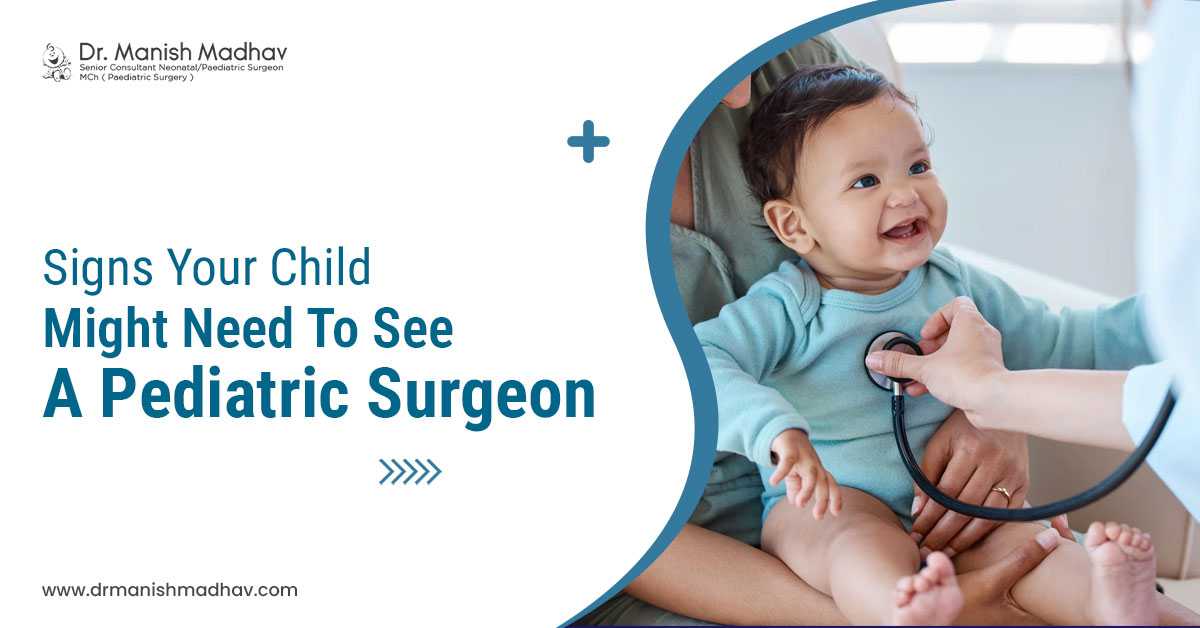Parents can relate that nothing is more important than the health and wellness of their child. A pediatrician can treat the majority of health issues in children, but occasionally, specialized treatment becomes a must. Your little one may need to see a pediatric surgeon if a health situation requires so.
Yes, this may seem overwhelming, but knowing such signs early on may enable you to make decisions. Also, this guide helps ensure that your kid receives the proper treatment when they need it. Have a read to know when to consult a pediatric surgeon.
What Is a Pediatric Surgeon?
A physician with specialized training in operating on newborns, children, teens, and adolescents is known as a pediatric surgeon. These doctors handle both scheduled and emergency procedures, from birth defect correction to appendix removal or some cancer surgeries.
Advanced training and practical experience teach the special characteristics of pediatric medical and surgical treatment. This indicates that these doctors know how to effectively treat children with more care and accuracy because of the major differences in their anatomy from that of adults.
Why Would a Child Need Surgery?
A kid may require surgery for a variety of reasons, including:
-
Birth problems, or congenital defects
-
Issues with the digestive tract
-
Hernias
-
Cysts or tumors
-
Trauma or injuries
-
Infections that are resistant to treatment
Let's Now Understand the Signs That Your Child May Need a Pediatric Surgeon
1. Persistent Abdominal Pain
At some point, almost every child gets a stomach ache. However, severe or ongoing stomach pain may pinpoint something concerning. You should notice the qualities of this pain, such as:
-
Pain that persists for several hours
-
Pain takes too long to go away
-
The lower right abdomen has this, which may indicate appendicitis
-
Pain accompanied by fever, vomiting, or abdominal swelling.
If you notice these signs, know that it's time to give your doctor a call. These symptoms may indicate intestinal blockage, appendicitis, or hernias, many of which demand surgery.
2. Vomiting That Doesn't Go Away
Are you wondering why my baby is vomiting after every feeding? A kid frequently throws up because of dietary allergies or some illnesses. However, if your kid is:
-
Throwing up a lot and with force
-
Unable to control fluid intake
-
Green or yellow bile vomiting
-
Showing signs of dehydration, such dry lips, decreased wet diapers, and no tears in kids
-
Having a cold body with or without diarrhea
It may indicate a vast diagnosis, including complete blood count and ultrasound, sometimes. Surgery is often a great treatment choice to resolve conditions like intestinal obstruction or pyloric stenosis.
3. Recurrent Infections That Don't Improve
Your kid may have an underlying problem that needs further tests or surgery if they have recurring infections. These may include abscesses, infected cysts, or infected lymph nodes that keep returning.
And, it may be necessary to surgically drain pus-filled pockets caused by certain illnesses to avoid any types of complications. In some situations, the condition may need a pediatric surgeon to remove a tumour or cyst.
4. Swelling or Lumps in the Groin or Abdomen
It might be a hernia in your kid. If you see a bulge or swelling in your child's groin, especially when they strain or your baby cries, see a doctor. Babies often have hernias, which may need surgical repair, called hernia repair. This pediatric surgery helps avoid future problems and is performed by pediatric surgeons.
Also, pediatric surgery is necessary to check for other tumors in the neck, limbs, or belly. Some benign tumors (noncancerous tumors) or cysts in kids may need to be removed, while others may not be harmful. For cancerous tumor treatment in kids, you may reach out to the best pediatric cancer surgeon in Siliguri.
5. Difficulty Swallowing or Breathing
Our little ones who often choke or have difficulty eating may have structural problems that we cannot diagnose without medical tests with their airway or esophagus.
These may be caused by birth defects that need to be treated by a surgeon. You should see a doctor if your kid has persistent breathing problems, snoring, or noisy breathing, even while they are asleep.
6. Unusual Bowel Movements or Blood in Stool
You’ve just noticed or your child tells you, bloody stool is nothing to ignore. You should keep an eye out for some signs, such as:
-
Stool with blood
-
Chronic constipation that doesn't go away with dietary changes
-
Bowel pains
-
An enlarged abdomen
These signs may be signs of a gastrointestinal problem, such as polyps, Hirschsprung's disease, or bowel blockage, which need surgery.
7. Birth Defects That Affect Day-to-Day Life
Congenital defects in some children include:
-
Extra fingers or toes
-
Cleft lip or palate
-
Imperforate anus
-
Undescended testicles
-
Abnormalities of the kidneys or heart
As your kid grows, some of these issues become visible, while others are apparent immediately after birth. Hence, talking to a pediatric surgeon is a wise choice because the doctor frequently collaborates with other experts to provide the most suitable treatment that enhances your child's life.
8. Injuries from Accidents or Falls
Such injuries are common in kids. Occasionally, falls, sports injuries, or auto accidents can lead to:
-
Internal hemorrhage
-
Broken bones
-
Deep wounds
-
Damage to organs
-
Extreme external bleeding
In order to promptly and safely treat severe injuries in these situations, pediatric surgeons team up with the emergency care department.
9. No Improvement with Regular Treatment
If your child's health isn't getting better with medications and lifestyle care, it could be time to talk to a pediatric surgeon. These may include:
-
Antibiotic-treated chronic tonsillitis
-
Repeated ear infections
-
Large adenoids that interfere with sleep
A minimally invasive surgery can be used to treat some of these more successfully.
When to Call Your Pediatrician
Always start by giving your child's physician or the clinic a call if you're ever unclear. Doctors are able to:
-
Analyze your child's clinical signs.
-
Perform initial tests.
-
If required, refer your kid to a pediatric surgeon.
Doctors are with you, and pediatric surgeons are highly skilled professionals, and pediatric hospitals have basic to advanced equipment, child-appropriate anesthesia support, and personalized support to the needs of children.
Conclusion
That’s perfectly OK to seek a second opinion if surgery is advised. You can proceed with confidence if you are aware of the signs that your kid may need to see a pediatric surgeon. Even though having surgery is never an easy choice, taking action early can improve results and, in many cases, surgery is the only option. Understand that the goal of your child specialist and surgical team is to help them grow up happy, healthy, and strong.






